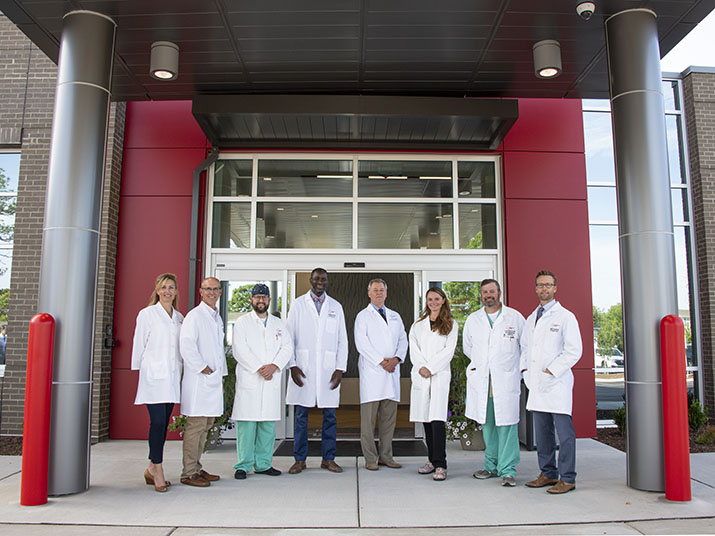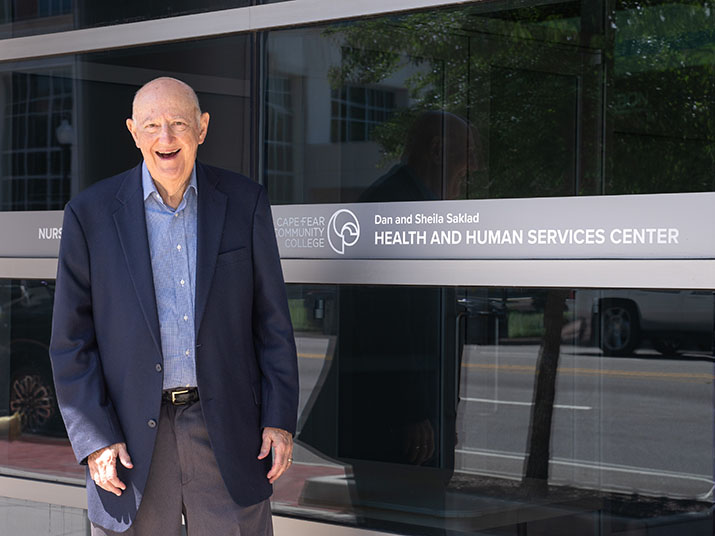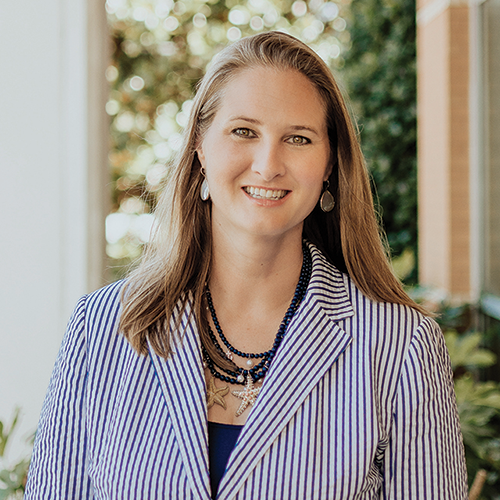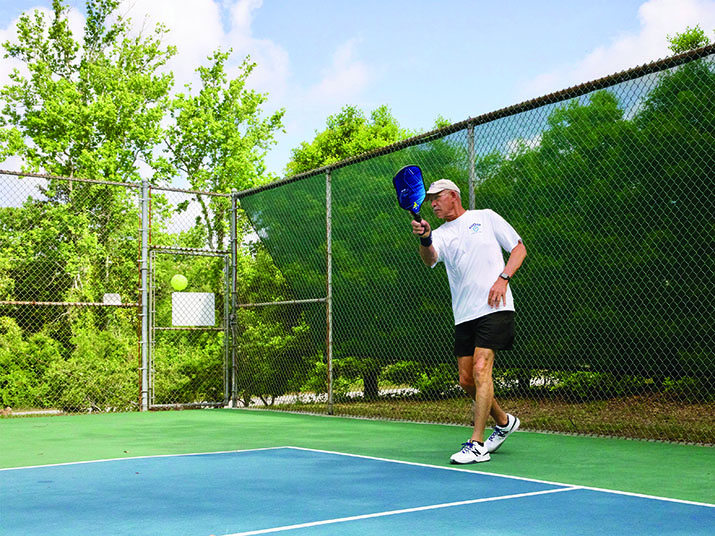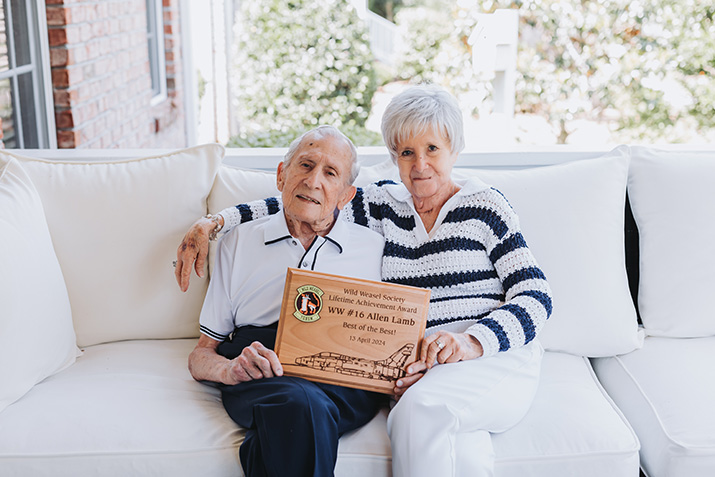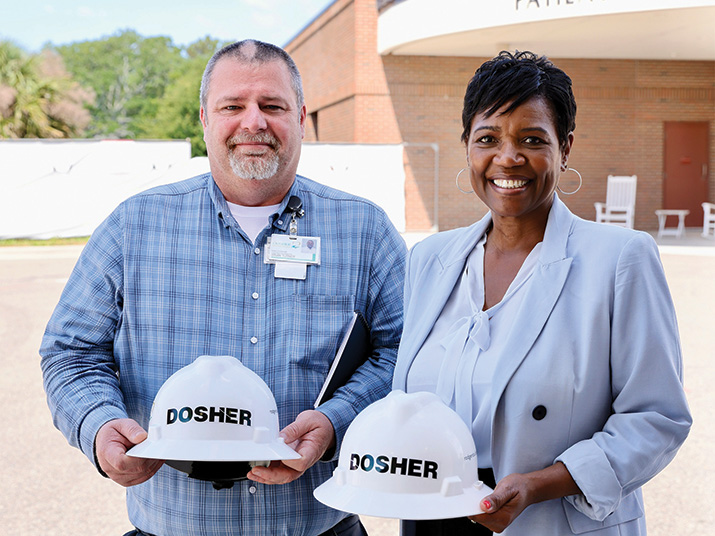Emeritus nurses provide vital infusion of experience, support to Novant Health NHRMC
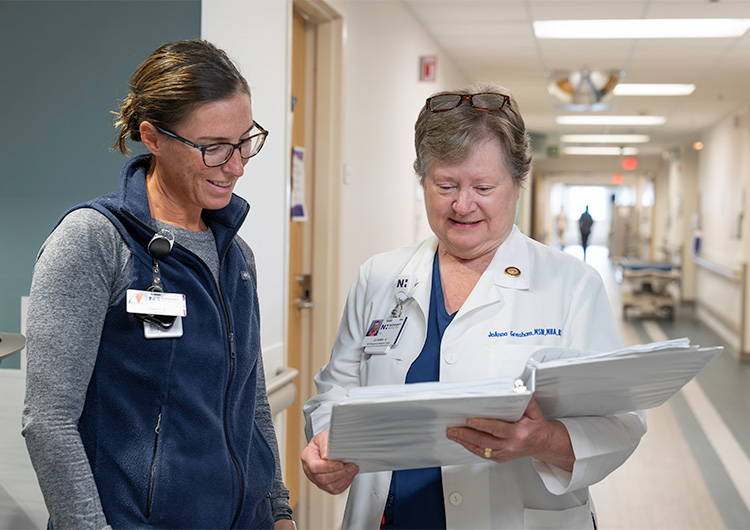
Jo Anna Gresham (right) is one of about a dozen emeritus nurses at Novant Health New Hanover Regional Medical Center. Emeritus nurses like Gresham provide mentorship and support to new nurses. (Photo courtesy of Novant Health)
In 2020 and 2021, at a time when the nation needed quality nursing staff more than ever as it faced wave after wave of the COVID-19 pandemic, a dire trend emerged: many nurses were retiring or leaving the profession, while the number of new nurses dwindled.
In response, local health care leaders rolled out an innovative solution to retain nursing talent and improve patient outcomes – and now a year later, emboldened by the effort’s success, they’re hoping to expand the initiative for a bigger impact.
Novant Health New Hanover Regional Medical Center’s Emeritus Nursing Program, launched in 2022, employs retired, experienced nurses to serve as mentors for the nurses providing direct care to the hospital’s patients. This creates a win-win situation for retired and new nurses: retired nurses get to continue working in a field they love without putting in 12-hour shifts, and new nurses have the guidance of nurses with years of experience.
The program is good for patients as well, because it results in better patient care, according to Darlene Olson, the program’s director.
“It’s a huge benefit for retired nurses to give back in a casual manner,” Olson explains. “It builds value by bolstering our nursing staff and makes a stronger team. We’re able to provide the next level of care for everyone who walks through the doors.”
The hospital currently has about a dozen emeritus nurses, each of whom has extensive experience. All the emeritus nurses have served as a registered nurse for a minimum of 10 years, and some have held leadership positions in their previous workplaces.
The emeritus nurses work in four-hour shifts in the units in which they have had the most experience. Rather than being assigned specific patients or nurses, these expert nurses support and mentor their unit’s entire nursing staff.
Often the emeritus nurses’ teaching is spontaneous and informal. For example, when Jo Anna Gresham, an emeritus nurse who works on the hospital’s cardiac floor, sees an unusual EKG rhythm, she gives the new nurses an impromptu lesson about it. Gresham then urges them to share the information with other nurses.
“I encourage them to teach their peers on another shift,” Gresham says. “Sharing our knowledge among colleagues helps patient care.”
At other times, unit nurses seek out their emeritus nurse colleagues for guidance, and their requests span a gamut of situations. The emeritus nurse may be asked to oversee a new nurse while she or he performs a procedure for the first time, give a second opinion on a medical condition or procedure, provide guidance when a nurse encounters a new or unusual situation, take over a lengthy technical procedure so the bedside nurse can attend to other patients, and more.
“The emeritus nurses are a resource for whatever the day looks like,” says Olson. “Even an experienced nurse may run into something that they need a second set of eyes for… and our emeritus nurses can jump in. For the new nurses, they help build…concrete skills. Somebody with 30 or 40 years of experience has seen everything.”
The emeritus nurses also help unit nurses navigate the emotional hurdles that come with the job. They make it a point to check in with nurses in orientation, who may be overwhelmed by all that nursing entails.
“Sometimes they are frustrated that they aren’t getting it fast enough,” says Gresham. “I encourage them and let them know those feelings are normal. If they come to me, I make them feel better. I know I can change their mood; and by the time they leave me, they are ready to go again. Then patients get better care, because the nurses are in a different mindset.”
More experienced nurses, on the other hand, may ask for guidance determining their next career step, and emeritus nurses have the background to offer solid advice. This, too, enhances patient care, according to Gresham
“I want nurses to seek education and learning opportunities,” she explains. “The more knowledge any of us gains on the job or through formal education, the better care we can deliver.”
Another of the emeritus nurses’ responsibilities – and one that is particularly close to their hearts – is spending time with patients. That may mean getting a patient ice or a warm blanket or lending a sympathetic and caring ear when a patient is scared, lonely, or angry.
“When the patient wants to talk or needs to talk, I can spend 30 minutes or however long it takes for me to get that patient to a better place,” she explains. “As you know, the nurses who are actually taking care of the patients are quite busy…. I have the time, so I help meet those needs of the patients.”
The emeritus nurses also perform other essential tasks that ensure a unit runs smoothly and safely. For example, they make patient rounds on every shift to help ensure that all safety mechanisms are in place.
Like other emeritus nurses, Gresham also checks that each room on her unit is fully supplied. It’s a simple task but one that gives health aides more time to attend to patients.
“Our nursing assistants take vital signs, take blood sugar, give patients baths, so anytime I can free up another health care worker from a mundane task, I’m freeing them up to actually take care of the patients,” says Gresham.
Another advantage of the Emeritus Nurse Program is that these expert nurses, who come from hospitals near and far, add to the hospital’s body of knowledge. They bring new ideas about how to perform procedures and tasks, which Olson says presents opportunities to improve the hospital’s systems.
“An experienced nurse may say, ‘At this hospital we did this,’” Olson explains. “Even subtle tweaks can make things better at our facility.”
The Emeritus Nurse Program is already yielding positive results. The retention rates on units with emeritus nurses have improved, which Olson credits to the positive environment created by the expert nurses’ mentorship and guidance.
The next step is to expand the program, which Olson hopes will double in size in the coming 12-18 months. The hospital is currently taking applications for the emeritus positions.
The program’s success comes as no surprise to Gresham, who says mentorship plays an essential role in nurse satisfaction, longevity in the field, and commitment to a hospital.
“The research is clear that when graduate nurses have a strong mentor relationship, the outcome is a more positive experience for nurses, and that helps them identify with the organization,” says Gresham. “We are helping to grow our own [nurses] and we want to keep our nurses in this hospital in this area… That positively affects the health care system and the community.”

